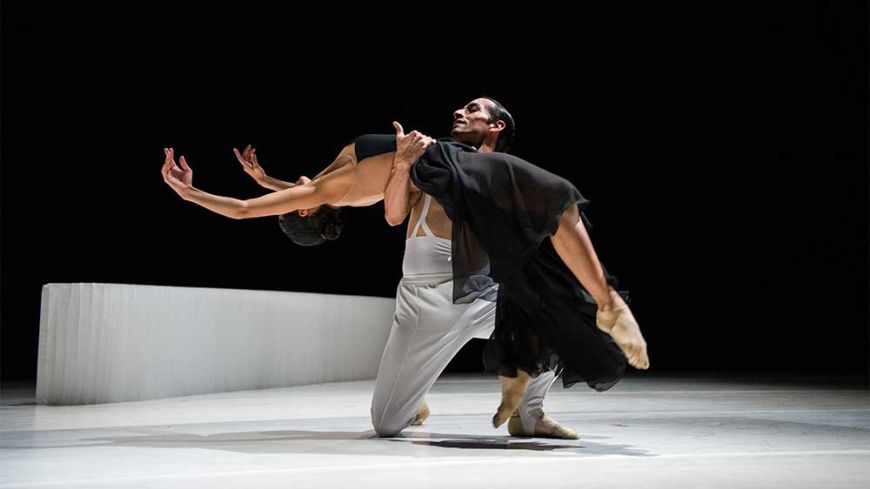
In CARMEN.maquia, Ballet Hispánico present two contrasting performances; first 'Línea Recta', then the titular piece 'CARMEN.maquia' which tells the story of Bizet's opera with his own dramatic music.
Ballet Hispánico are a leading Latino dance company from the States and, as their name suggests, unites dance styles to celebrate Latino culture. The opening number, 'Línea Recta' could not be more of a personification of these ideals. The piece opens with a lone dancer in a costume that takes a low bow to flamenco tradition. Her movement is powerful and commanding, and the use of her costume arresting. As other dancers join her the stage begins to glow with a heat haze as Spanish lines are made fluid with ballet discipline, and a combination of these styles seems a match made in heaven. The bright red of their costumes reminisces heat and passion as the lead dancer stalks like a phoenix through the liquid flame of her male counterparts.
The eponymous piece contrasts drastically. Although noticeably the same amalgamation of flamenco lines and ballet poise with occasional twitches of hiphop and contemporary dance, 'CARMEN.maquia' has a completely different feel. Gone is the fire and the tangible flamenco passion of 'Línea Recta' in favour of a sparse, monochrome design.
For a story that is so steeped in heat and passion, love and hate and physicality, these elements are all cooled by the achromaticity on stage. Bizet's evocative music does its work to rouse the blood but there seems something strangely lacking on stage as the crackle of Latino fire sounds dull against the sides of their black and white box. There is sense to be found in the artistic design, based it seems on Picasso's monochrome phase and cubism with the concertina style blocks of set, and his paintings also make an appearance. Picasso himself was born in Málaga where, according to a letter from Mérimée about his original novella, the inspiration for the story came, but the attempt to follow in the artist's footsteps in replacing the sensual pleasure of colour with intellectual design does not marry well with the hot blooded narrative.
Dance, and particularly Ballet Hispánico's style heavily involving flamenco, seems the perfect medium to tell the story of Carmen but somehow it lacks the sensuality it needs, and there is little variation in the storytelling. All the spikes of conflict are there, and Don José's inner torment is exquisite, but it lacks fluidity and lyricism at times. There are moments to get the heart racing; choreography with the rope on the way to prison, the soldier's ensemble dances and José and Micaela's final duet are wonderful and could be divine if they were permitted a warmer pallet.
The dancing is technically flawless and the potential shown in 'Línea Recta' for their physical and emotional intensity give high hopes for the main event, but 'CARMEN.maquia' falls slightly south of the bullseye. Prosper Mérimée wrote his novella as a love song to his Spanish ideal, and while the company are perfectly able to do it justice, it is difficult to fall in love with this production.
Tickets £19-£28.50
6th-10th March, 2.30pm Matinee, 7.30pm Evening

